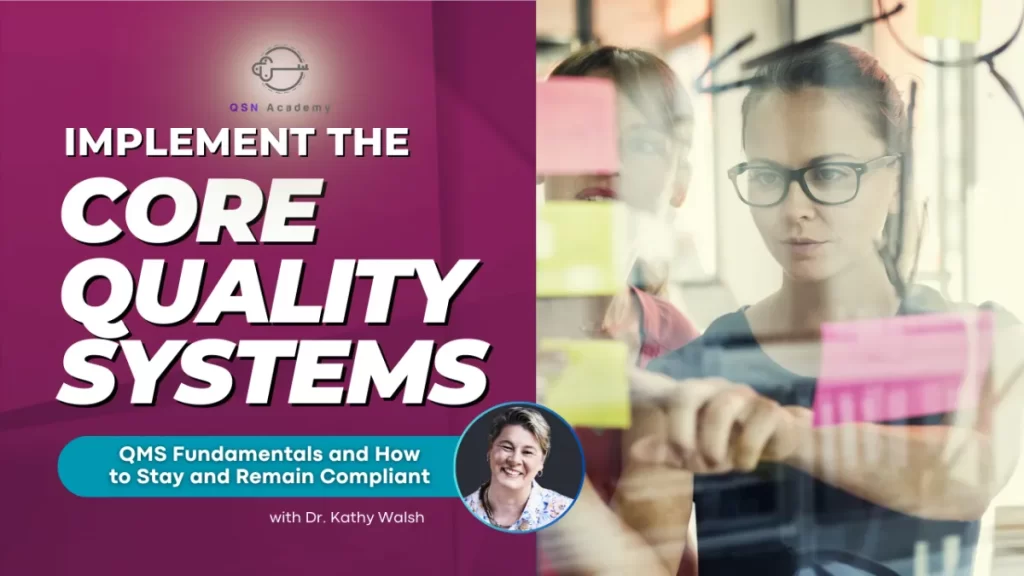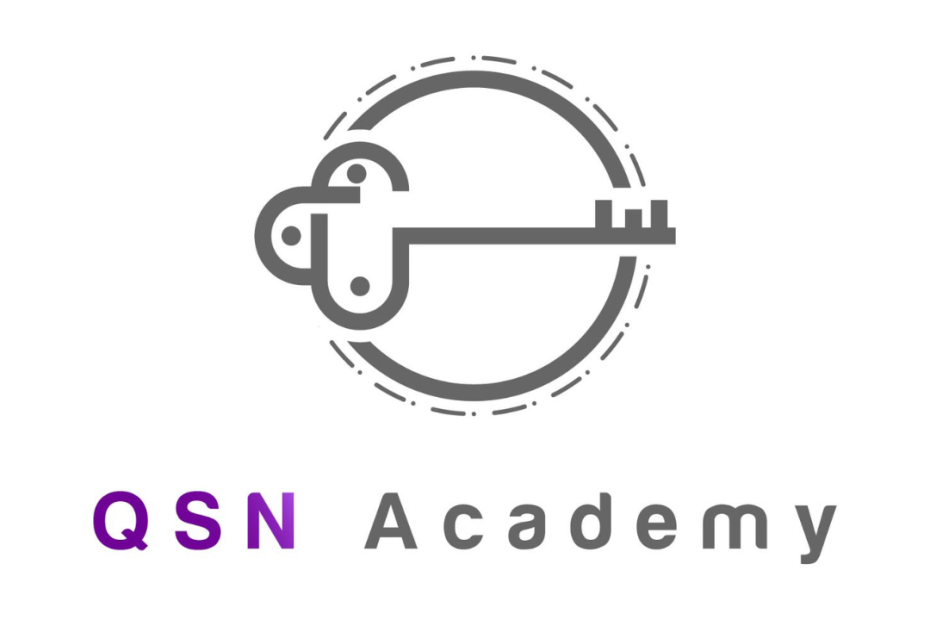Are You looking for a training partner to upskill your organisational compliance knowhow? Look no further, QSN Academy is tailored to cater to individuals, startups, and enterprises operating within regulated industries or those in the fields of R&D, high-tech, and manufacturing. To Learn more about QSN Academy, click here.
Becoming an ISO compliance specialist involves acquiring a deep understanding of international standards, compliance requirements, and implementation strategies to help organizations achieve ISO certification. In this comprehensive guide, we will explore the training and skills required to become an ISO compliance specialist, the benefits of pursuing this career path, and the steps involved in obtaining relevant certifications.
Talk to us today to find out more
Understanding ISO Certifications:
ISO (International Organization for Standardization) certifications are internationally recognized standards that define requirements for various aspects of quality management, environmental management, information security management, occupational health and safety management, and more. These standards provide organizations with frameworks and guidelines for establishing and maintaining effective management systems, ensuring consistency, efficiency, and compliance with regulatory requirements.

Role of an ISO Compliance Specialist:
An ISO compliance specialist plays a crucial role in helping organizations navigate the complexities of ISO standards and achieve certification. Their responsibilities may include:
- Consulting and Advisory: Providing expert guidance and advice to organizations on understanding ISO standards, assessing compliance requirements, and implementing effective management systems.
- Training and Education: Developing and delivering training programs, workshops, and seminars to educate employees and stakeholders on ISO standards, compliance best practices, and implementation methodologies.
- Documentation and Implementation: Assisting organizations in documenting policies, procedures, and processes to align with ISO requirements and overseeing the implementation of management systems to achieve compliance.
- Audit and Assessment: Conducting internal audits and assessments to evaluate the effectiveness of existing management systems, identify areas for improvement, and ensure alignment with ISO standards.
- Certification Support: Facilitating external audits and certification processes by collaborating with certification bodies, preparing documentation, and guiding organizations through the certification process.
Skills and Qualifications Required:
To excel as an ISO compliance specialist, individuals need a combination of technical knowledge, practical experience, and interpersonal skills. Some key skills and qualifications include:
- Understanding of ISO Standards: In-depth knowledge of relevant ISO standards, such as ISO 9001 (Quality Management), ISO 14001 (Environmental Management), ISO 27001 (Information Security Management), ISO 45001 (Occupational Health and Safety Management), etc.
- Compliance Expertise: Familiarity with regulatory requirements, industry standards, and best practices related to quality management, environmental protection, information security, health and safety, and other areas covered by ISO standards.
- Project Management Skills: Ability to plan, execute, and manage projects related to ISO compliance, including defining objectives, allocating resources, monitoring progress, and ensuring timely completion.
- Communication and Interpersonal Skills: Effective communication skills to convey complex concepts, facilitate training sessions, and collaborate with stakeholders at all levels of the organization.
- Analytical and Problem-Solving Skills: Strong analytical and problem-solving abilities to assess compliance gaps, identify root causes, and develop practical solutions to address issues and improve processes.
- Attention to Detail: Meticulous attention to detail to ensure accuracy and completeness in documentation, audit procedures, and compliance assessments.
- Continuous Learning and Development: Commitment to ongoing learning and professional development to stay updated on changes to ISO standards, emerging trends, and best practices in compliance management.
Training and Certification Pathway:
Training to become an ISO compliance specialist typically involves a combination of formal education, professional certifications, practical experience, and on-the-job training. Here’s a step-by-step pathway to becoming an ISO compliance specialist:
- Educational Background: Obtain a bachelor’s degree in a relevant field such as quality management, environmental science, information technology, engineering, business administration, or a related discipline.
- ISO Training Courses: Enroll in ISO training courses and workshops offered by accredited training providers, industry associations, or professional organizations. These courses cover various aspects of ISO standards, compliance requirements, implementation methodologies, and audit techniques.
- Professional Certifications: Pursue professional certifications related to ISO standards to validate your knowledge and expertise. Some widely recognized certifications for ISO compliance specialists include:
- ISO 9001 Lead Auditor
- ISO 14001 Lead Auditor
- ISO 27001 Lead Auditor
- ISO 45001 Lead Auditor
- Certified ISO Compliance Professional (CICP)
- Certified ISO 9001 Quality Management Systems (QMS) Professional
- Practical Experience: Gain hands-on experience through internships, entry-level positions, or volunteer opportunities in quality assurance, compliance management, audit, or related fields. This practical experience is essential for applying theoretical knowledge in real-world scenarios and developing practical skills.
- On-the-Job Training: Seek opportunities for on-the-job training and mentorship from experienced ISO compliance specialists or professionals within your organization. Learn from their expertise, observe best practices, and actively participate in compliance projects to enhance your skills and capabilities.
- Continuing Education: Stay updated on changes to ISO standards, regulatory requirements, and industry trends by participating in continuing education programs, attending conferences, and pursuing advanced certifications or specialized training courses.
Career Opportunities and Advancement:
As an ISO compliance specialist, you can explore various career opportunities across industries, including manufacturing, healthcare, finance, information technology, government, and consulting firms. Potential job roles include:
- ISO Compliance Manager
- Quality Assurance Specialist
- Environmental Health and Safety (EHS) Coordinator
- Information Security Analyst
- Regulatory Compliance Officer
- Management Systems Consultant
- Audit Manager
With experience and expertise, ISO compliance specialists can advance to senior-level positions, such as ISO compliance director, corporate compliance officer, or management consultant, with increased responsibilities, leadership roles, and higher earning potential.
Becoming an ISO compliance specialist requires a combination of education, training, certifications, and practical experience. By acquiring in-depth knowledge of ISO standards, compliance requirements, and implementation strategies, individuals can play a vital role in helping organizations achieve certification, improve processes, and maintain regulatory compliance. Pursuing a career as an ISO compliance specialist offers rewarding opportunities for professional growth, advancement, and making a positive impact on organizations’ success in today’s global marketplace.

